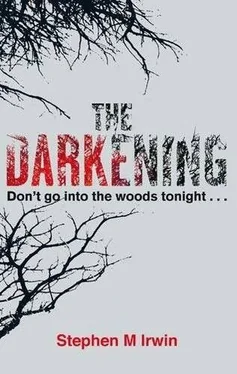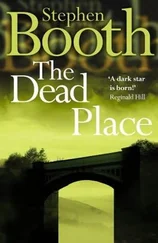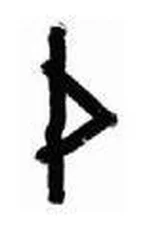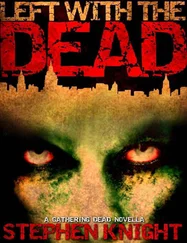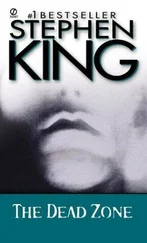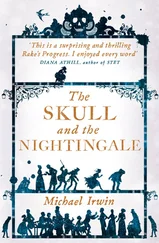Stephen Irwin - The Dead Path
Здесь есть возможность читать онлайн «Stephen Irwin - The Dead Path» весь текст электронной книги совершенно бесплатно (целиком полную версию без сокращений). В некоторых случаях можно слушать аудио, скачать через торрент в формате fb2 и присутствует краткое содержание. Жанр: Триллер, на английском языке. Описание произведения, (предисловие) а так же отзывы посетителей доступны на портале библиотеки ЛибКат.
- Название:The Dead Path
- Автор:
- Жанр:
- Год:неизвестен
- ISBN:нет данных
- Рейтинг книги:5 / 5. Голосов: 1
-
Избранное:Добавить в избранное
- Отзывы:
-
Ваша оценка:
- 100
- 1
- 2
- 3
- 4
- 5
The Dead Path: краткое содержание, описание и аннотация
Предлагаем к чтению аннотацию, описание, краткое содержание или предисловие (зависит от того, что написал сам автор книги «The Dead Path»). Если вы не нашли необходимую информацию о книге — напишите в комментариях, мы постараемся отыскать её.
The Dead Path — читать онлайн бесплатно полную книгу (весь текст) целиком
Ниже представлен текст книги, разбитый по страницам. Система сохранения места последней прочитанной страницы, позволяет с удобством читать онлайн бесплатно книгу «The Dead Path», без необходимости каждый раз заново искать на чём Вы остановились. Поставьте закладку, и сможете в любой момент перейти на страницу, на которой закончили чтение.
Интервал:
Закладка:
Pritam sighed and took a sip of sherry. He could now save his king and lose his bishop, or resign. Just once he would love to see the old man’s face in defeat. He scoured the board for alternatives that he knew would not be there.
“Who were your visitors earlier?” asked Hird.
“Never mind.”
“Well, I do mind. What if they were more Hindustanis? Unwashed half-breed cousins you’re trying to slip in under the radar? You breed like frogs. Or worse: what if they were Liberal campaigners? Soliciting your venal, oily hide for your curry-fingered vote?”
Pritam looked up at the old man. His eyes were sparkling with delight.
“You met one of them at Gavin Boye’s funeral,” he said.
Hird’s white eyebrows knitted together. “In the church?”
Pritam nodded. “And his sister.”
Hird thought for a moment. “Here to discuss the suicide?”
“I resign,” said Pritam.
“At last!” crowed Hird, then sobered slyly. “Oh, you mean the chess game. No, I won’t let you. Always to the death.” He looked at the younger man. “Well?”
“They were talking about the murder of the young Thomas boy.”
The older reverend nodded. “And?”
“And nothing.”
“My friend Bill Chalmers baptized Nicholas Close. The boy’s agnostic, like his mother and, I presume, his sister. Their father was a dodgy bastard: turned to drink, left his wife in the lurch with the kids, wrapped himself round a power pole. And then, of course, when Close was a boy his young mate, the other Boye lad, got done in…” Hird carefully cleared one nostril with a thumbnail, and looked up over his eyeglasses at Pritam. “I might be old and foolish in my choice of successors, but I still have capacity to wonder why two agnostics would come to see an Anglican reverend on a rainy winter’s night.”
Pritam waited. There was no getting around this. Hird would harass and hassle him into answering as inevitably as he would extract a victory on the chessboard. He sighed.
“They mentioned a Mrs. Quill. A dressmaker, I think.”
The older reverend nodded, very slightly. “And?”
“And, nothing. I didn’t want to worry you with this sort of nonsense, John.”
Pritam fell silent, and Hird watched him over his spectacles.
“I know English isn’t your first language, so take your time.”
Pritam threw up his hands. “Fine! He wanted you to look at the photograph of Eleanor Bretherton and then for me to ask you about this Quill woman.”
Hird looked over his shoulder at the old photograph of the church’s construction, and wearily got to his feet.
“And now you’re going to do it?” asked Pritam, incredulous. “Is this your way to draw out my misery?”
Hird winked and hobbled over to the picture. He adjusted his glasses.
“I remember Mrs. Quill,” he mumbled.
Pritam returned his attention to the board. If he couldn’t find a graceful way out of this game, he could at least backtrack and see the mistakes that had led him to lose.
“Did you learn to play in Korea? John?” Pritam looked up at the old man. Hird was staring at the photograph. His face was white and his hand shook with a palsy.
“John?”
Hird looked at Pritam and shook his head slowly.
“She’s…”
Then he dropped to one knee and slumped onto the floor like a shot beast.
“John!”
Pritam ran to the old man. His breaths were shallow and fast, and his mouth formed silent, unknowable words. Pritam scrambled for the telephone.
T he rain had finished, and the clouds were leaving like concertgoers after the final curtain. A beautiful night: chill and clear, moonless; the sky was a dark glass scrubbed clean and waiting.
The suburb of Tallong eased itself to sleep. House lights switched off one by one, two by two, by the dozen, until it seemed only the bright pearls of streetlamps strung their beads around the dark folds of the slumbering suburb. The narrow roads were glossed with the rain, and tiny streams chuckled in the gutters and fell with dark gurgles into stormwater drains to rush underground toward the nearby river. No cars disturbed the stillness. Only the trees sang softly their night-breeze song, whispering.
The woods were all shadow and moist as private flesh.
At their heart, a fire flickered. In a cottage that had been long built even before the suburb’s old Anglican church had been started, flames licked fallen twigs in a stone-lined fire pit. The fire cast tall, thin shadows that jerked and clawed up the timber walls as if desperate for escape.
Over the flames hunched an old woman. Her withered lips moved, but her words were soft; intended, perhaps, for the flames, or for something unseen already listening for her offer. Her hands, more like bone than flesh, moved quickly. In the uncomforting flicker of the hungry flames: a flash of silver, a splash of dark liquid, the ash of something crumbled through deft fingers. Then a final item, and the old woman’s hands slowed and moved with care. Tweezered in her skeletal fingers, a few long hairs joined by a small patch of blood-crusted skin. In went the hair and skin.
Her lips moved again.
The fire rose.
Outside, a chill wind grew, as if to carry across the night treetops, along the empty streets, and into the slumbering suburb a dark gift, urgent and baleful.
Chapter 18
T he sunlight felt harsh and brittle. Nicholas squinted as he watched Suzette speak on her telephone. He was exhausted. Even the simple choice-whether to stand and close the greasy curtains or sit here squinting-was debilitating.
Suzette finished her call and looked at her brother. There were bags the color of soot under her eyes. She’d aged ten years in a night.
“Nelson has a fever,” she said.
They had talked about this possibility for a half-hour over tea this morning. She’d risen from her deep, unnatural sleep and her hand went to her raw patch of scalp. Nicholas had argued that she must have lost the clump of hair scrambling away from Garnock. She disagreed, and stated plainly that the dog-and she said the word “dog” the way most people said “cancer”-had wrenched it out right after it surprised her with the bite.
“It wasn’t sent to hurt me,” she explained with a smile. “It was sent for my hair. She’s going to hex me.”
And not a minute after she’d said those words, her mobile phone rang. Bryan was calling with news that their son was suddenly ill.
Nicholas and Suzette sat silent for a while.
“Bryan’s taking him to the twenty-four-hour clinic in Glebe,” said Suzette, finally. She licked her lips. There was more she wanted to say, but wouldn’t.
“You have to go home,” said Nicholas.
For a long while she stared at her hands, saying nothing.
“How sick is Nelson?” he asked.
“I don’t know.”
“Is she…” Nicholas hesitated, but there was no easy way to phrase it. “Is she trying to kill him?”
Suzette thought about this, then shook her head. “I don’t think that’s her plan,” she said, and looked up at Nicholas. “She’s dividing us.”
He nodded.
“But you can look after him? Nelson?”
“If it came out of the blue, maybe not. But since I know this sickness is an attack, yes. I think so.” She couldn’t meet his eyes. “But I have to be there.”
“I know.”
“She’s afraid of us,” she said.
Nicholas snorted. “She has no need to be.”
He produced the telephone book and hunted for the airline’s listing.
“We know more about her than anyone else in a century and a half,” said Suzette, turning one hand over. The puncture marks were healing remarkably fast and already looked days old. She touched them uneasily.
Читать дальшеИнтервал:
Закладка:
Похожие книги на «The Dead Path»
Представляем Вашему вниманию похожие книги на «The Dead Path» списком для выбора. Мы отобрали схожую по названию и смыслу литературу в надежде предоставить читателям больше вариантов отыскать новые, интересные, ещё непрочитанные произведения.
Обсуждение, отзывы о книге «The Dead Path» и просто собственные мнения читателей. Оставьте ваши комментарии, напишите, что Вы думаете о произведении, его смысле или главных героях. Укажите что конкретно понравилось, а что нет, и почему Вы так считаете.
